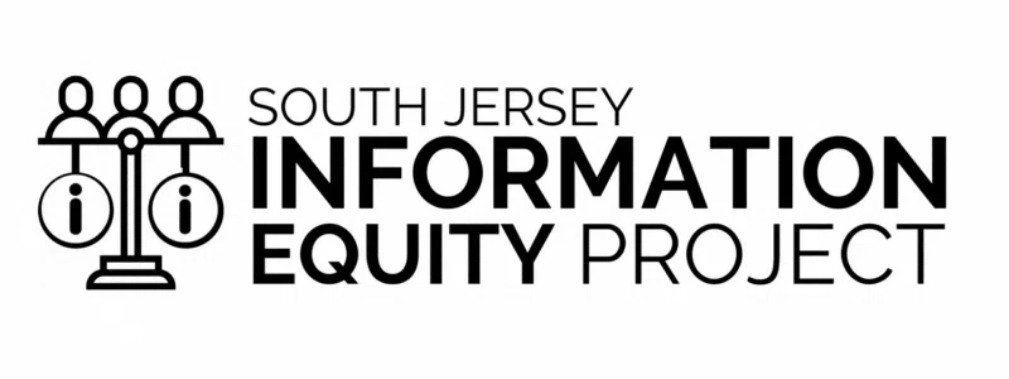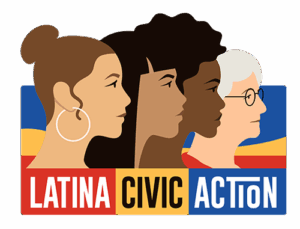How Is Affordable Housing Crisis Affecting Black and Brown Residents of South Jersey?

EDITOR’S NOTE: This story was produced as part of the Center for Cooperative Media at Montclair State University’s South Jersey Information Equity Project, with funding support from the Independence Public Media Foundation.
BY AHNYAH PINCKNEY | South Jersey Information Equity Project
The affordable housing crisis has deeply affected New Jersey residents for some time now and with the rising cost of living, it is hard for families to catch a break.
Although new housing is being built, only a certain amount is required by law to be allocated as affordable units. And now municipalities across the state have until the end of January to address the mandate to add or restore some 150,000 units of affordable housing by 2035.
According to the National Low Income Housing Coalition, affordable housing is considered the combination of rent and utilities that do not exceed 30% of a given income threshold. Affordable housing is broken into four subcategories: extremely low income, very low income, low income and moderate income.
In response to social media outreach, folks throughout South Jersey listed their grievances with the housing market and their frustration with waiting lists.
Shahida Street of Burlington County said that she believes many people are in need of very low income housing and that’s why the waiting lists for these programs — including vouchers, rental assistance, and affordable housing developments — are so high.
“The waiting lists for the very low incomes are astronomical,” Street wrote via Facebook. “Then, in terms of moderately low incomes, the rent prices are still relatively high in comparison to net incomes and in some cases the credit score requirements are unreasonable.”
Nicole Pinckney, a resident in Lindenwold, also shared the same sentiments as she reflected on her past eviction leading up to her present day apartment hunting.
“I’ve been working on my credit, but the score at this particular housing unit wanted you to have a 600 and mine at the time was in the low 500’s and there’s no exceptions,” said Pinckney. “Things like that hinder you but I think that most people that are going for these affordable housing units are struggling so you’re not going to have perfect credit. Everyone is paycheck to paycheck and just trying to make it out here.”
Some affordable housing could disappear in five years
The Low Income Housing Tax Credit (LIHTC), the nation’s largest affordable housing program, gives $10 billion in annual tax credit authority to state and local agencies, which they use to incentivize the purchase, renovation, or construction of rental housing for lower-income families.
The National Low Income Housing Coalition (NLIHC), which works to support this program has estimated that within the next five years, about a quarter of LIHTC properties will be wiped out. Essentially, “some of these units will be lost from the affordable housing supply as they convert to market-rate rents. Others may be lost to physical deterioration unless new capital investment is available for rehabilitation and renovation.”
The Associated Press has also reported that more than 223,000 affordable housing units could be lost by 2030, giving rise to more rent hikes and evictions as tenants struggle to pay their rent.
The lack of housing is nothing new under the sun and for years the crisis has severely impacted Black and brown people. For instance, the NLIHC found that Blackand brown households are disproportionately extremely low income renters who are impacted by this shortage. According to their research, ”Nineteen percent of Black non- Latino households, 17% of American Indian or Alaska Native households, and 14% of Latino households are extremely low-income renters, compared to only 6% of white non-Latino households.”
Over time, policies have been introduced to promote fair housing for everyone and to address and eliminate residential segregation. In New Jersey, the first major affordable housing mandate emerged through a series of state Supreme Court decisions in the 1970s.
Affordable housing gains in New Jersey
The Mount Laurel Doctrine of 1975 required all New Jersey municipalities to set aside a certain amount of regions for affordable housing. According to the doctrine, “towns are required by law to follow certain rules that safeguard access to affordable housing for low-income families and communities of color.”
However, in recent years, towns have not been holding up their end of the bargain. In response, New Jersey Gov. Phil Murphy signed a 2024 housing law to ensure that towns are meeting their affordable housing obligations.
This new law appointed The Department of Community Affairs to determine the responsibilities of each municipality. They created two categories: “present need” and “prospective need” obligations to address the housing issue.
“Present need” brings attention to about 65,000 affordable housing units that have been neglected throughout the years and are in dire need of renovations. “Prospective need” addresses the 85,000 affordable housing units that need to be built.
The DCA identified present housing needs by region. Based on the agency’s findings in South Jersey, Region 5 (Burlington, Camden, and Gloucester) and Region 6 (Atlantic, Cape May, Cumberland, and Salem) must restore a total of 9,328 housing units.
A Burlington County resident who wished to remain anonymous because of the fear of retaliation from her apartment complex shared how she noticed that residents in the affordable units aren’t treated the same as residents who pay marketplace value.
“The issue that I have with affordable housing is that they create these houses and they give the affordable [housing] people the cheaper product. My square footage versus my neighbors square footage is different. … I get it but what is the point of making affordable housing so you can live in a good neighborhood and you give them the cheaper products? My refrigerator went out and I said something is wrong with my refrigerator. They’ll keep sending the maintenance man over here 15 times to fix the refrigerator but the people over there say something is wrong and they are brought a new one.”
Towns sue over affordable housing
“Every town has an affordable housing trust fund and those funds can be used to build new affordable housing or rehab affordable housing,” said Rev. Eric Dobson, Senior Strategic Consultant to the Executive Director with the Fair Share Housing Center.
“It depends on if it’s a non-profit developer or a for-profit developer in terms of what homes you see that are in good shape or bad shape, or are they government homes,” he said.
According to Dobson, this new law ensures that towns will no longer be able to get away with their neglect and will face consequences if quotas are not met. This stricter enforcement has upset some wealthier towns, leading to a lawsuit.
At present, 27 New Jersey towns are suing the state of New Jersey over the new affordable housing law because they deem it to be unfair. Among the plaintiffs is the South Jersey town of Mannington, a township in Salem County.
Dobson believes that the people should not be worried about the lawsuit, but should know that it is the municipalities that have been delaying the progress that residents hope to see.
“This has always been a tactic by suburban particularly wealthy suburban municipalities. Stall, delay, and not do what they are supposed to do. This is just another attempt to block a law that was signed into law, so there is no way they are going to win this case. This is just some towns who have for years tried to avoid their constitutional obligation,” said Dobson.
Pinckney also shared that searching for housing resources proved to be difficult if people don’t know exactly what to search for and she wished that these organizations would give clearer access to the resources available.
“They need to be more out front with the information and genuine about helping people. An information hotline or something. The information is there but if you don’t know where to find it you’re lost,” she said.
Here are some affordable housing sites that may help:
Reporter Ahnyah Pinckney is a South Jersey native and a two-time SJIEP fellow. She is currently an Associate Digital Producer at WHYY. Pinckney is also a recipient of the 2024 SJIEP Alumni Reporting Award, which supported this reporting.
Follow Us Today On:
Note from AC JosepH Media: If you like this story and others posted on Front Runner New Jersey.com, lend us a hand so we can keep producing articles like these for New Jersey and the world to see. Click on SUPPORT FRNJ and make a contribution that will go directly in making more stories like this available. Thank you for reading!




